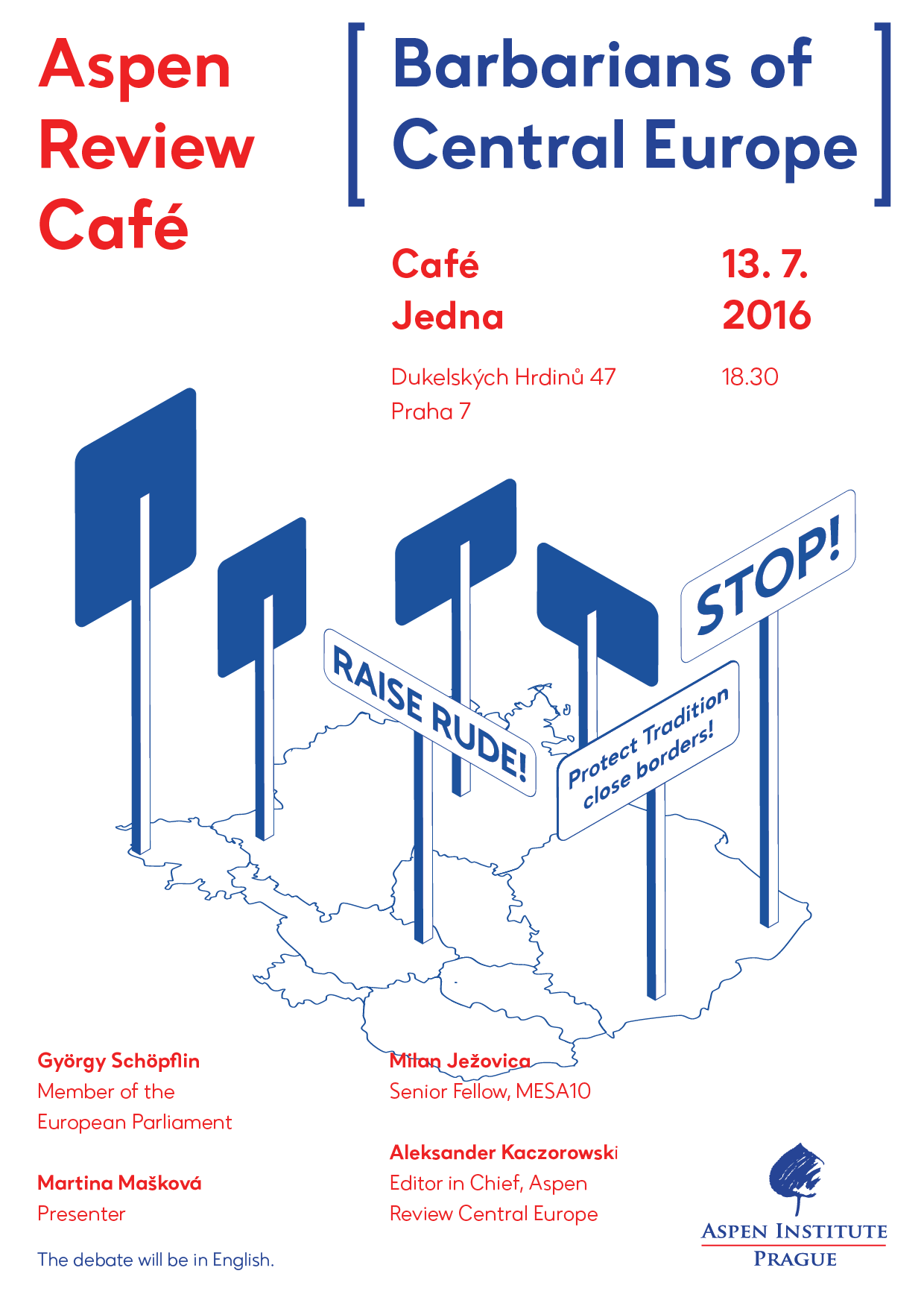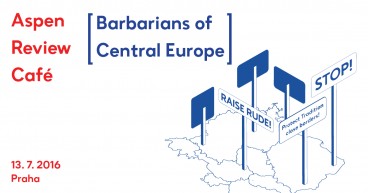WHEN: July 13, 2016, 18:30-20:00
WHERE: Café Jedna (Dukelských Hrdinů 530/47, Praha 7)
Barbarians of Central Europe | Aspen Review Café
It is our pleasure to invite you to a public debate titled Barbarians of Central Europe? which is a side event accompanying the eponymous issue of our Aspen Review CEE quarterly. Within the Aspen Review Café series, we give the public an opportunity to discuss current topics with renowned experts and authors.
We will discuss the issue of Central Europe’s role within the EU: The response to the refugee crisis along with illiberal tendencies in the Visegrad countries that joined the EU just a decade ago, are causing a rift between its old and new member states.
The event will be opened by director of Aspen Institute Prague Jiří Schneider. Panelists on the debate are:
- Milan Ježovica, Senior Fellow, MESA10, Slovakia
- Aleksander Kaczorowski, Editor in Chief, Aspen Review CEE, Poland
- György Schöpflin, Member of the European Parliament and author of a cover story in the latest issue of Aspen Review, Hungary
- Martina Mašková, Presenter and Moderator, Czech Republic
More information and updates are available at the Facebook event. The debate will be held in English.
We are looking forward to seeing you!
The team of Aspen Institute Prague


